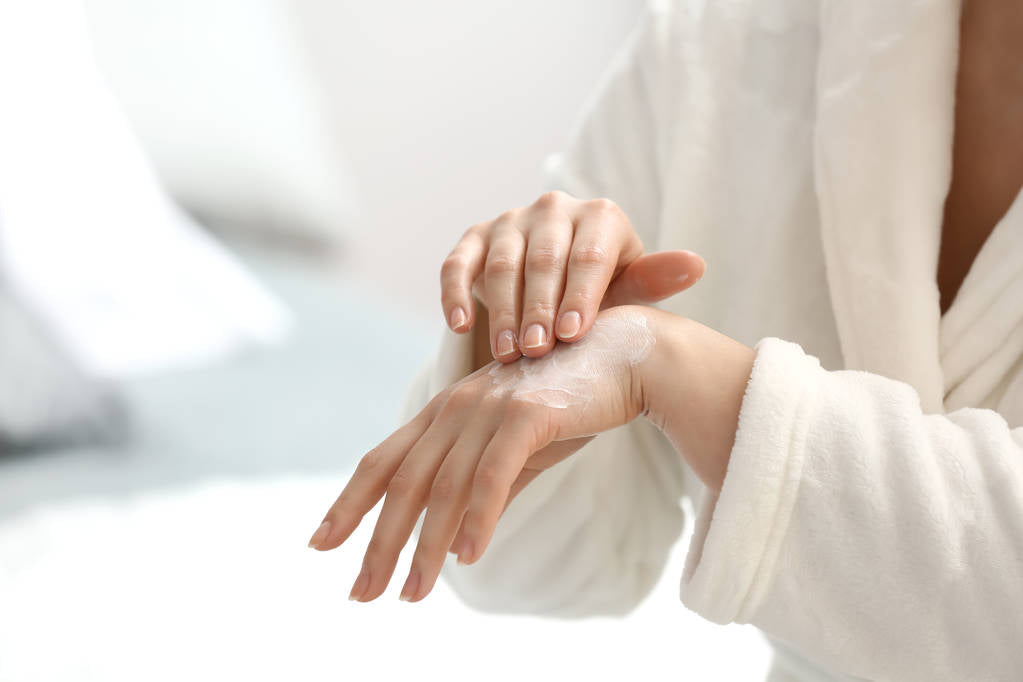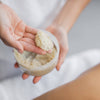How to Care for Cracked Skin

Cracked skin often worsens during colder seasons or when you already have sensitive skin. It can easily make everyday activities painful. Not only can cracks in the skin be uncomfortable, but they can also lead to further complications if not treated properly.
At Jericho Skincare Australia, we understand the unique needs of skin prone to cracking and dryness, and our mission is to provide skincare solutions that soothe, heal and protect your skin. Keep reading our detailed guide for practical tips and expert advice on managing cracked skin and restoring its natural health.
Understanding Cracked Skin
Cracked or fissured skin is a condition where the skin’s surface develops deep splits or cracks. Knowing the underlying causes and the different types of cracked skin can help you effectively manage and treat this condition. Potential causes may include:
- Dryness: Skin lacks elasticity due to moisture loss, leading to potential cracks.
- Chronic Conditions: Psoriasis, contact dermatitis, and other conditions can weaken the skin’s natural barrier.
- Climate: Low temperatures drain moisture, speeding up dryness, especially as your skin adjusts to seasonal changes.
- Frequent Washing: Essential for cleanliness yet potentially harsh on the skin.
Effective Tips for Managing Cracked Skin
Managing cracked skin requires a multifaceted approach to restore moisture, protect your skin, and prevent further damage. So, combine practical strategies with the right products to improve your skin’s condition. Here are some tips to prevent and heal cracked skin:
1. Choose the Right Moisturiser
Pick a good moisturiser with emollients (natural & mineral oils) and humectants (such as glycerin) to draw moisture in. Dead Sea minerals are also excellent for dry, cracked skin as they restore moisture balance while soothing irritation. You might also want to try creams with shea butter, jojoba oil, aloe vera and vitamin E. Here are a few more ingredients known for their skin-healing properties:
- Lactic Acid
- Hyaluronic Acid
- Dimethicone
- Lanolin
2. Stick to Gentle Cleansing
Harsh cleansers and soaps can make things worse by further drying your skin. Avoid anything that strips away your skin’s natural oils, and pick a gentle, fragrance-free cleanser or a natural soap instead. Gentle cleansers made for sensitive skin, like those with aloe vera or oatmeal, soothe inflammation while cleaning without causing more damage. Also, you should adjust your washing routines to keep your skin healthy:
- Hot water can dry your skin faster, so use lukewarm water instead.
- Keep the bathroom door closed while you bathe to help maintain the humidity.
- Keep your showers or baths short to around 10 minutes or less.
- Use a minimal amount of gentle, fragrance-free cleanser.
- Afterwards, pat your skin dry softly—no rubbing!
- Apply moisturiser immediately after drying to lock in all the moisture.
3. Protect Your Skin
Protecting your skin is just as important as treating it. Here are some protective measures to keep in mind:
- Wear gloves made of materials like rubber or silicone to prevent hydration loss during activities like dishwashing, cleaning, or prolonged water exposure.
- Dry winter air can strip moisture from your skin, leading to chapping and cracking. Use insulated gloves to keep your hands warm and dry in cold conditions.
- Harsh chemicals in cleaning agents and other irritants can cause skin dryness, damage, or allergic reactions. Use chemical-resistant and durable gloves to prevent direct contact with harmful substances.
- Use a humidifier to maintain healthy indoor humidity, particularly in dry environments.
- Drink plenty of water every day to protect your skin’s elasticity. Proper hydration helps keep your skin vibrant by supporting normal blood volume and circulation.
5. Be Mindful of Exfoliation
If you’re struggling with dry, cracked skin on your face, gentle exfoliation can actually make your moisturiser work better. Choose chemical exfoliants like AHAs over harsh physical scrubs. However, avoid exfoliating open wounds or severely cracked areas and focus on surrounding areas to encourage healing.

Cracked Skin Treatment: Hands, Feet, and Lips
Different parts of your body can get cracked skin for different reasons, and it’s important to provide each area with specific care. Get to know these differences to manage and prevent cracked skin more easily.
Here’s a quick comparison of how to handle cracked skin on your lips, hands and feet:
Hands: What Helps Heal Cracked Skin?
- Causes: Regularly being exposed to water and soaps.
- Treatments: Petroleum jelly and similar thick moisturisers can protect your hands and shield cracks from further exposure. Apply it several times a day to speed up recovery.
- Preventative Measures: Limit soap use, wear gloves in cold or wet conditions, and apply moisturiser immediately after water exposure.
- Product recommendations: Jericho Hand Cream, Mon Platin DSM Hand & Nails Treatment, and Black Caviar Hand Moisturiser with Vitamin Capsules
- Healing Timeline: Superficial cracks often heal within a week, while more severe ones may need up to two weeks.
Feet: What Can I Use for Cracked Skin on My Feet?
- Causes: Long hours on your feet, unsupportive footwear, and arid conditions make your skin thicker and more prone to cracking, especially on your heels.
- Treatments: Apply intensive moisturising creams with urea or salicylic acid to soften the skin. For severe cracking, use a liquid bandage to provide the necessary sealing.
- Preventative Measures: Use pumice stones regularly, moisturise your feet overnight, and wear well-fitted shoes.
- Product recommendations: Jericho Foot Cream, Mon Platin DSM Anti Crack Foot Cream, Juman Foot Cream with Dead Sea Minerals & nourishing Sea of Spa Foot Butter.
- Healing Timeline: Regular care usually fixes minor cracks quickly, but more stubborn ones might need several weeks of attention.
Lips: How Can You Treat Cracked Skin on Your Lips?
- Causes: Frequent exposure to harsh environmental elements and habits like lip-licking are primary contributors.
- Treatments: Apply lip balm consistently, especially after meals or drinks. If you’re struggling with lip-licking, behaviour modification strategies like setting rewards can encourage stopping the habit.
- Preventative Measures: Use a hydrating, non-irritating lip balm with sun protection and take extra care during extreme weather for the best results.
- Product recommendations: Use Mon Platin DSM Moisturising Lip Balms.
- Healing Timeline: Chapped lips typically show improvement within days of consistent treatment; however, altering habitual behaviours might take longer.
When to Call a Doctor
If cracked skin persists despite following these treatments or if you notice signs of infection, such as swelling or pus, it’s essential to seek medical advice. A healthcare professional can provide targeted treatments and assess any underlying conditions contributing to your skin issues.
For those with chronic conditions like diabetes, it’s important to seek medical advice right away if you see any new or worsening symptoms, especially on your feet.
Where Can You Find the Best Creams for Cracked Skin?
At Jericho Skincare Australia, we are committed to simplifying your skincare routine with high-quality, mineral-rich products that offer relief and restoration. Our range of creams and treatments is designed to address various skin concerns, including cracked skin.
Check out our online shop for natural skincare solutions and keep nurturing your skin with kindness and expertise!






